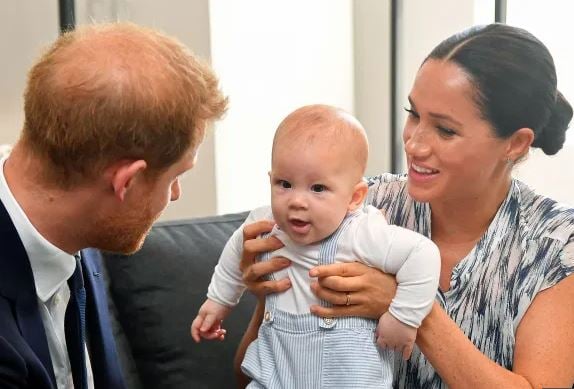On Sunday, Meghan Markle, the Duchess of Sussex, raised concerns over Archie, her son, not being a prince despite being born into the British royal family.
In the now-viral interview with Oprah Winfrey, Meghan, who sat alongside Prince Harry, her husband, had accused the royal family of denying their son the title on the basis of his skin colour.
The 39-year-old had also revealed that she got wind of the development during a conversation she had with Harry while she was pregnant.
“In those months when I was pregnant, all around this same time, so we [had] the conversation of he won’t be given security, he’s not going to be given a title. And, also, concerns and conversations about how dark his skin might be when he’s born,” she had said.
Meghan, however, failed to mention the royal who had the conversation with Harry but said it would be “damaging” to mention the person who raised it.

But how true was her claim? TheCable Lifestyle examines what it takes to become a prince or princess in the royal family and why Archie wasn’t given a title at birth — as many expected.
What is the royal protocol’s provision on becoming a prince or princess?
A 1917 letters patent by George V explicitly states who is entitled to become a prince or princess within the royal family. Letters patent is a type of legal instrument — in the form of a published written order — issued by a governing power, such as a king, president, head of state or corporation, that gives a patentee an exclusive right or privilege.
According to the order — issued more than 100 years ago — the children and grandchildren of a sovereign have the automatic right to the His Royal Highness (HRH) title and prince or princess.
It, however, exempted the eldest son of the eldest son of the Prince of Wales from the provision.
“The grandchildren of the sons of any such sovereign in the direct male line (save only the eldest living son of the eldest son of the Prince of Wales) shall have and enjoy in all occasions the style and title enjoyed by the children of dukes of this realm,” it read.

Prince William, Harry’s older brother, is currently the eldest son of Prince Charles — heir to the throne. William’s eldest son is Prince George.
This means both Archie and George are great-grandsons to Queen Elizabeth. But based on the 1917 directive, George is automatically a prince while Archie is not — at least for now.
By the original provision, Prince George’s siblings — Charlotte and Louis — are not qualified for royal titles.
But in 2012, the queen issued another letters patent granting all Prince William’s children the privilege to have royal titles.
Markle had alluded to the 1917 directive during the interview when she expressed reservation at the “idea of the first member of colour in this family not being titled in the same way that other grandchildren would be.”
“They were saying they didn’t want him to be a prince or princess, not knowing what the gender would be, which would be different from protocol,” she had added.
Does it mean Archie can never become a prince?
Archie is still eligible to become a prince. But that is only when Charles accedes the throne. Based on the 1917 provision, only the grandchildren of the king are entitled to become the prince or princess.
Moreover, Harry, Archie’s father, is currently not in contention for the throne or would be anytime soon. At the moment, the 36-year-old is the sixth in line to the throne preceded by Prince Charles, Prince William, Prince George, Princess Charlotte and Prince Louis.
The succession line is also expected to move down as William and his kids produce more children of their own. This simply means Archie’s best shot at being a prince is when Charles becomes the king.
It also implies that the pair’s expected second child would also not have a title until Charles gets to the throne.
Did Harry and Meghan oppose calling Archie a prince?
When Archie was born on May 6, 2019, rumours swirled in some quarters that the couple were opposed to him having a royal title.

The fact that he was simply named Archie Harrison Mountbatten-Windsor also thickened the claims.
But Meghan had denied the claims during the interview, noting that she was in support of her son becoming a prince as long as it makes him feel safe.
“Okay, well, he needs to be safe so we’re not saying don’t make him a prince or princess, but if you’re saying the title is what’s going to affect that protection, we haven’t created this monster machine around us in terms of clickbait and tabloid fodder you’ve allowed that to happen which means our son needs to be safe,” she had said.
Copyright 2025 TheCable. All rights reserved. This material, and other digital content on this website, may not be reproduced, published, broadcast, rewritten or redistributed in whole or in part without prior express written permission from TheCable.
Follow us on twitter @Thecablestyle

